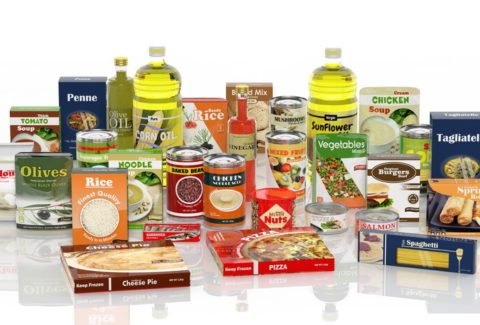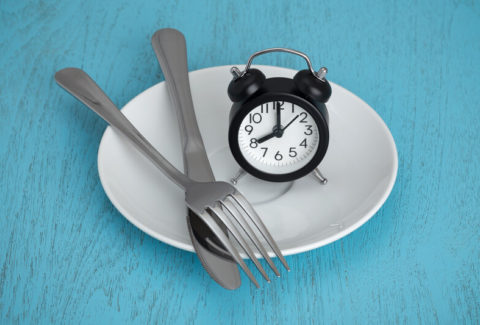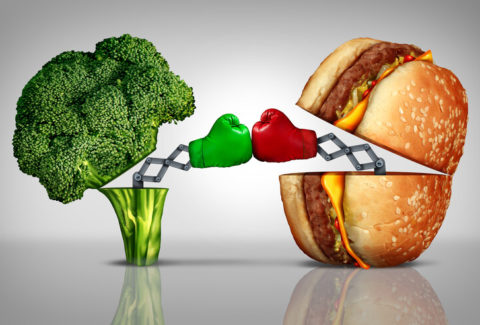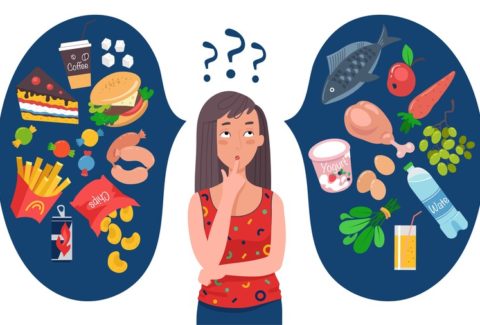How To Make Optimal Use of Imagination-Focused Therapy (IFT)

How To Make Optimal Use of Imagination-Focused Therapy (IFT)
In a previous article entitled, the Practical Use of Imagination-Focused Therapy (IFT), we wrote about the use of triggers to stimulate our cognitive function of imagination. We mentioned that one of these powerful triggers is the Process of Inquiry (PI). In this current article, we are going to illustrate the How of using the Process of Inquiry (PI) for the optimal use of the cognitive function of imagination. We will also provide some illustrations.
Process of Inquiry and the Conscious Use of Our Cognitive Function of Imagination
As we previously mentioned, our brain cannot ignore a question. We explained that this is so because questions stimulate our cognitive function of imagination.[1] We added that the type of stimulation or response is a function of the quality of the question. The higher the quality of the question the more substantial the response[2]. And the Process of Inquiry has been shown to be the most sophisticated way to achieve this goal. The following are 9 of the highest quality questions used in the Process of Inquiry as a powerful trigger to stimulate and make conscious use of the cognitive function of imagination:
- What would happen if….?
- What would it be like if….?
- What if….?
- What would it feel like if….?
- How different would my life be if…?
- What would it look like if….?
- Wouldn’t it be nice if…?
- What would it sound like if….?
- How different would things be if?
Illustrations:
What would happen if….?
Examples, using the area of health, ease, comfort, and well-being:
- What would happen if I were healthy?
- What would happen if I were comfortable?
- What would happen if I were at ease?
- What would happen if every single cell of my body were healthy?
- What would happen if every single organ of my body were totally healthy?
- What would happen if every single one of my body organs were totally healthy?
- What would happen if I were strong?
- What would happen if I were energetic?
- What would happen if I were in optimal shape?
- What would happen if I had a healthy lifestyle?
- What would happen if I ate well?
- What would happen if I exercised regularly?
Illustrations:
What would happen if….?
Examples, using the area of Relationship with Others and myself:
- What would happen if I had a healthy relationship with my mother?
- What would happen if I had a healthy relationship with my father?
- What would happen if I had a healthy relationship with my daughter?
- What would happen if I had a healthy relationship with my son?
- What would happen if I had a healthy relationship with my brother?
- What would happen if I had a healthy relationship with my sister?
- What would happen if I had a healthy relationship with my siblings?
- What would happen if I had a healthy relationship with my parents?
- What would happen if I had a healthy relationship with my children?
- What would happen if I had a healthy relationship with everyone?
- What would happen if I had a healthy relationship with everything around me?
- What would happen if I had a healthy relationship with myself?
- What would happen if I had a healthy relationship with my thoughts?
- What would happen if I had a healthy relationship with my feelings?
- What would happen if I had a healthy relationship with my habits?
- What would happen if I had a healthy relationship with my results?
- What would happen if I had a healthy relationship with my body sensations?
- What would happen if I had a healthy relationship with my perception?
- What would happen if I had a healthy relationship with my belief system?
- What would happen if I had a healthy relationship with my senses?
Illustrations:
What would happen if….?
Examples, using the area of money, finances, wealth, prosperity, and abundance:
- What would happen if I were financially stable?
- What would happen if I had financial freedom?
- What would happen if I were independently wealthy?
- What would happen if I no longer had to work for money?
- What would happen if I had all the money I needed whenever I needed it?
- What would happen if I were prosperous?
- What would happen if I were abundant?
- What would happen if I let go of my scarcity mindset?
- What would happen if I felt financially secure?
- What would happen if I had financial security?
- What would happen if I had enough money to contribute to others?
Illustrations:
What if:
- What if I were happy?
- What if I were wealthy?
- What if I were successful in my endeavors?
- What if I were courageous?
- What if I were brave?
- What if this were a disguised opportunity?
- What if I were abundant?
- What if I were prosperous?
- What if I were financially independent?
- What if I were financially free?
- What if I were independently wealthy?
- What if I no longer needed to work for money?
- What if I were free?
- What if I were energetic?
- What if I were strong?
- What if I were successful?
- What if I had a harmonious relationship with everyone?
- What if I loved myself?
- What if I forgave myself?
- What if I were committed to myself?
- What if I loved myself just a little bit more?
- What if I were kinder to myself?
- What if I were gentler with myself?
- What if I were confident?
- What if I were assertive?
Illustrations:
What would it be like if….?
- What would it be like if I had a healthy relationship with my thoughts?
- What would it be like if I had a healthy relationship with my feelings?
- What would it be like if I had a healthy relationship with my behaviors?
- What would it be like if I had a healthy relationship with my habits?
- What would it be like if I had a healthy relationship with my results?
- What would it be like if I had a healthy relationship with my beliefs?
- What would it be like if I had a healthy relationship with my body sensations?
- What would it be like if I had a healthy relationship with my perception?
- What would it be like if I had all the money I need?
- What would it be like if I no longer had to work for money?
- What would it be like if I had something to contribute to the world?
- What would it be like if I were Health?
- What would it be like if I were Safety?
- What would it be like if I were Security?
- What would it be like if I were Freedom?
- What would it be like if I were Comfort?
- What would it be like if I were Peace?
- What would it be like if I were Peace of mind?
- What would it be like if I were at peace?
- What would it be like if I were content?
- What would it be like if I were satisfied?
- What would it be like if I were joyful?
- What would it be like if I were happy?
- What would it be like if I were grateful?
- What would it be like if I were thankful?
Illustrations:
Wouldn’t it be nice if?
- Wouldn’t it be nice if I weighed 140 pounds?
- Wouldn’t it be nice if I were in great shape?
- Wouldn’t it be nice if I were patient?
- Wouldn’t it be nice if I were wise?
- Wouldn’t it be nice if I were decisive?
- Wouldn’t it be nice if I were fearless?
- Wouldn’t it be nice if I made time to exercise at least 30 minutes a day three times a week?
- Wouldn’t it be nice if I made time to read for at least 20 minutes a day?
- Wouldn’t it be nice if I could respond instead of reacting?
- Wouldn’t it be nice if I could intend instead of having to respond?
- Wouldn’t it be nice if I were proactive instead of reactive?
- Wouldn’t it be nice if I were organized?
- Wouldn’t it be nice if I were in the present?
- Wouldn’t it be nice if I were mindful?
- Wouldn’t it be nice if I practiced mindful eating?
- Wouldn’t it be nice if I practiced mindful speaking?
- Wouldn’t it be nice if I were healthy?
- Wouldn’t it be nice if I forgave myself?
- Wouldn’t it be nice if I loved myself?
- Wouldn’t it be nice if I were committed to myself?
- Wouldn’t it be nice if I contributed to the world?
- Wouldn’t it be nice if I modeled consciously?
- Wouldn’t it be nice if I lived a conscious life?
- Wouldn’t it be nice if I lived life Inside-Out?
- Wouldn’t it be nice if I were fulfilled?
Illustrations:
How different would my life be if?
- How different would my life be if I ate healthy?
- How different would my life be if I exercised?
- How different would my life be if I had an optimal quality of sleep?
- How different would my life be if I had a healthy relationship with my loved ones?
- How different would my life be if I believed in myself?
- How different would my life be if I let go of fear?
- How different would my life be if I were courageous?
- How different would my life be if I were brave?
- How different would my life be if I were hopeful?
- How different would my life be if I were in the present?
7 Steps for the Optimal use of the Process of Inquiry (PI):
- Make it part of the Unconscious-based Interventions
- Start with Breath Scanning, which helps you gain direct access to your unconscious mind, hence a more direct access to your cognitive function of imagination
- Choose an area of your life, then choose an inquiry, and use the inquiry with gentleness, without applying force, yet with assertiveness, confidence, and conviction
- Use the inquiry with vivid memories, using as many of your senses as possible, which means, making use of as many of your sensory-based types of imagination as possible
- Wait for 6-10 seconds after each inquiry, bringing your awareness to your breath (adjusted Breath Scanning), or your heart (adjusted Heart Scanning), while permitting whatever thought, perception, or feeling, to emerge
- Complete with a Breath Scanning
- If any idea for concrete acting emerges, ensure it is optimal timing. You will be able to recognize the timing, based on the presence of a state of peace, or lightness, or of certainty. A state of doubt may be an invitation for you to make use of the Cognitive Faculty Assignment Approach (CFAA) before proceeding.
Would you like to learn how to make these valuable resources available to your clients?
If so, join us now for our upcoming 4-week certificate course on Imagination-Focused Therapy. CLICK HERE TO ENROLL.
[1] Davies, Jim, Cristina Atance, and Gema Martin-Ordas. “A framework and open questions on imagination in adults and children.” Imagination, Cognition and Personality 31.1 (2011): 143-157.
[2] Fadem, Terry J. The art of asking: ask better questions, get better answers. FT Press, 2008.








